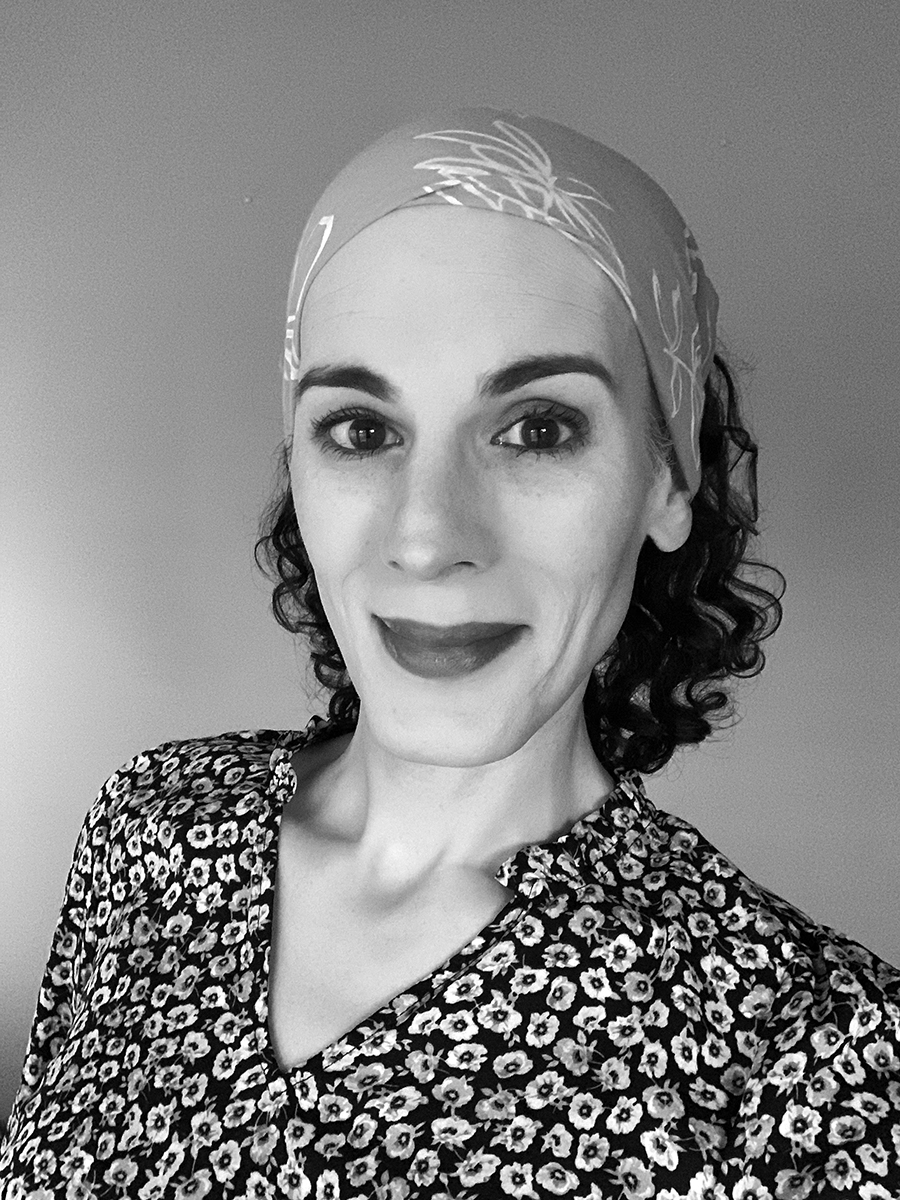by Marisa Actis
Transgender and gender non-conforming people are individuals that come to realize at some stage in life that the typical gender binary of male or female just don’t adequately represent who they are. The process of transition is a process many individuals undertake to outwardly reflect their inner self. Transition is often a lifetime pursuit with many hurdles, one of which is the access to gender-affirming healthcare.
As a member of the trans community one of the things I’ve come to appreciate and love about it is the diversity within it. There is no one way to transition, only the path that is right for the individual undertaking this gender journey. With such a diverse community, the healthcare needs for trans individuals are equally as diverse, and since most people and healthcare professionals have never interacted with a trans person, trans people often experience a lack of access to gender-affirming healthcare, gatekeeping, and discrimination from the healthcare system.
Access to gender-affirming healthcare is covered with many pitfalls. Members of the trans community experience a higher level of stigma, poverty, and unemployment than the general population and since so much of our healthcare system is tied to employer-based insurance coverage, many simply lack the insurance coverage to visit a qualified healthcare professional or lack coverage for gender-affirming procedures. In my journey I was incredibly fortunate to have a resource like OUTMemphis, which has resources for trans individuals and a list of recommended and qualified healthcare professionals. But even then, I found that many of my preferred therapists and doctors were not covered by my insurance.
Transgender services, such as those provided by Out Memphis, Planned Parenthood, and CHOICES, are becoming more and more common in major cities, but there are still many who drive hours to see a healthcare professional that has experience working with trans patients. It’s not uncommon for trans patients to educate healthcare workers that lack training in gender-affirming care. Most doctors and nurses never receive training in LGBTQ+ healthcare, maybe because we make up such a small percentage of the population. LBGTQ+ healthcare may not seem as important to some, but to us it’s a matter of life and death. Healthcare is an incredibly personal topic and for some it’s a daunting task to advocate for oneself when dealing with a healthcare professional lacking knowledge in the field.
Access to gender-affirming care is not only limited by insurance but also by gatekeeping, which is the process of placing unreasonable hurdles to obtain care. Gatekeeping can include the refusal to accept trans patients, or require that all patients seeking gender affirming care obtain an assessment from a mental healthcare provider. The informed consent model of transgender healthcare, where these hurdles are minimized is slowly becoming the norm, but plenty of doctors and clinics still require a trans individual to undergo many unreasonable steps to obtain care. This can pale in comparison to what many trans folks go through in other countries, where patients can wait for years to see a specialist to obtain the care they need.
For those seeking gender-affirming care, especially in the early stages of transition, the fear of discrimination is often front of mind for many. I would be filled with worry about how I would be received any time I visited a doctor’s office that I had previously visited pre-transition, worried about how the staff would address me and process my name change in the system. I’d be worried that I would have to explain my whole life journey in order to make the proper changes to documents, and the burden to justify your identity to someone can be overwhelming. These fears also affect people when they have unplanned visits to a hospital, when IDs and insurance don’t match how an individual would wish to be addressed. I often found myself explaining to staff, and even HR at my work, that it takes a long time for someone to legally change their name and gender on documentation. During this in-between time, there’s plenty of opportunity for mistakes, embarrassment, and unknowingly outing someone.
My spouse, a nurse for over 18 years, has always tried to be respectful of her patients and advocate for their care. In her time as an ER nurse, she’s taken care of trans patients that have come through the hospital and used the name and pronouns that they wish be used, even if their IDs/insurance state otherwise. Unfortunately, there are plenty of stories shared by trans and gender non-conforming individuals about situations where their personal pronouns and names were not used or ignored, even when confronted. This lack of respect for a patient’s identity does a disservice to their care, and pushes people away from oftentimes lifesaving care. Most medical charting systems don’t take into account when someone’s desired name and pronouns are different from those stated in legal documents, and better outcomes for transgender and non- binary patients would be likely as standards for documentation become more inclusive. These kinds of changes would not only help trans patients seeking care feel like they’re being respected, but it would help reduce errors in medical records, while making gender inclusive language and standards more well known to healthcare professionals.
I’ve often explained to friends and family that when it comes to transition, little things can have a huge impact on someone’s life, for good or bad. I’ve experienced amazing uplifting moments from the simple acts of a coworker as well as very dark mental states caused by hate-filled stares from a stranger. When it comes to the healthcare realm, one small negative experience can have a negative effect on a patient’s wellbeing. Feeling as if your healthcare is not a priority from those we trust to provide it, let alone outright discrimination, can lead a patient to avoid seeking professional and lifesaving care.
Speaking with Traci Stewart-Saltwell, an advocate, ally, and mother to a trans youth, I was able to gain a better understanding of the challenges that trans youth go through in their journey to obtain gender affirming care. I’ve had many conversations with people that have told me that trans youth are just too young to possibly know whether or not they’re transgender or gender non-conforming, and I think about what Traci shared with me and how her child, from a young age showed signs of gender dysphoria. Her son preferred boy’s clothes to girl’s clothes and had real struggles early in life coming to terms with their identity. This put into perspective my own childhood, growing up in Argentina in the 80’s, where there were no role models or examples of what could be possible, so it took much longer to find my path forward. This younger generation has so many role models and examples of what a gender non- conforming life can be and can begin to connect the dots at a much earlier age. To deny what someone is feeling deep down and the affirming care they need does a real disservice to their humanity, no matter the age.
In contrast to adult transgender care, care for trans youth has the added hurdle that time can be a big impact to positive outcomes. Many trans youth race to gain approval for puberty blockers, which can be fraught with unnecessary delays. This past year the stress became even greater with the onslaught of outright discriminatory bills and laws that swept through many states and aimed to limit or cutoff access to life saving gender affirming care for trans youth. This has driven many parents to make tough choices on where they live and where they obtain care for their child. It’s placed affirming care out of reach for many. When asking Traci how this has impacted her and her son, she said “he is going through a stage where he just wants to be a boy, he doesn’t want to be the poster child for transgender youth, he just wants to be a boy, and I want him to be a boy too.” It shouldn’t be too much to ask to live an authentic life.
Disparities in transgender healthcare are many, but there are people out there trying to help make it better. Traci shared with me how some doctors and nurses have been open to learning about transgender patients after seeing her son, which helps destigmatize the lives of transgender individuals. These interactions, along with better training of medical professionals, can really have a positive outcome for transgender patients. Traci also mentioned that the pandemic has moved many support groups online, which has the benefit of making such resources more accessible no matter where people live. Continued advocacy by passionate individuals and groups such as Tennessee Equality Project, can help highlight discriminatory bills and laws that will only serve to hurt people seeking gender-affirming care. From my experience seeking care I’ve encountered so many practitioners that truly want the best for their patients and are open to learning about how best to provide that care. It’s easy to become discouraged by the imbalances in our healthcare system, but the doctors and nurses who desire to treat transgender patients holistically give us hope.




